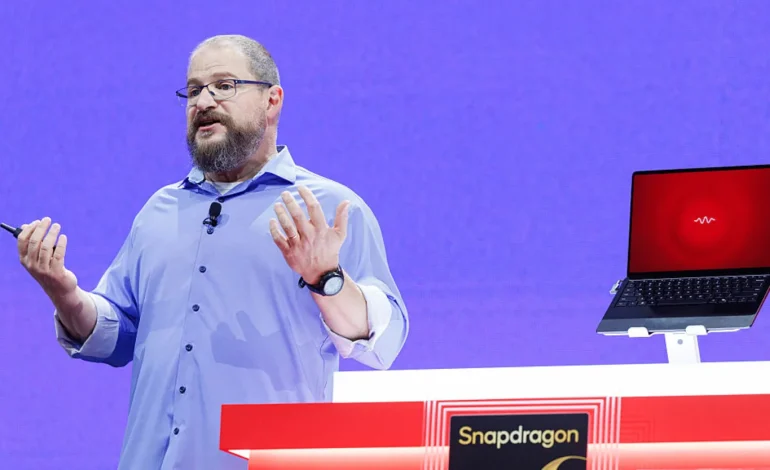Qualcomm announced plans to re-enter the data center market with a new line of custom central processing units (CPUs) designed to support artificial intelligence workloads.
A key feature of the upcoming chips is their ability to connect directly with Nvidia’s widely used graphics processing units (GPUs) and software ecosystem—an important integration in a sector increasingly shaped by AI computing.
The move marks a strategic shift for Qualcomm, traditionally known for its dominance in mobile chips, as it aims to expand into new markets including data centers, automotive, and personal computers. The company’s latest data center initiative builds on its 2021 acquisition of Nuvia, a startup founded by former Apple chip engineers that designs processors based on Arm architecture.
During a presentation at the Computex conference in Taipei, Qualcomm CEO Cristiano Amon highlighted the importance of linking with Nvidia’s infrastructure.
“With the ability to connect our custom processors to Nvidia’s rack-scale architecture, we’re advancing a shared vision of high-performance energy-efficient computing to the data center,” Amon said.
Nvidia’s GPUs have become central to training large-scale AI models, making compatibility with them essential for any company entering the data center space. Traditionally, these GPUs are paired with CPUs from dominant players like Intel and AMD, but Nvidia has also developed its own Arm-based CPU, the “Grace” chip, to provide a full-stack solution for AI applications.
Qualcomm’s announcement marks a return to a market it previously explored in the 2010s. The company had developed an earlier Arm-based CPU that was tested by Meta Platforms but ultimately shelved due to internal restructuring and external challenges. With new leadership and enhanced technical capabilities, Qualcomm is now renewing its efforts in this space.
The competitive landscape in data center CPUs is intense. In addition to Intel and AMD, major cloud providers such as Amazon and Microsoft have developed custom processors for their own infrastructure. Qualcomm aims to differentiate its offering with a focus on power efficiency and AI integration.
As part of its broader international push, Qualcomm recently signed a memorandum of understanding with Saudi Arabian AI company Humain, which is backed by the country’s Public Investment Fund. The agreement includes plans to develop custom data center CPUs tailored to AI applications in the region.
Qualcomm’s expansion also includes the personal computing sector. Amon noted that over 85 PC designs using the company’s Snapdragon X Series chips are either on the market or in development, with more announcements expected at its annual summit in September. The company is promoting on-device AI capabilities as a key feature of its chips, emphasizing benefits such as faster performance and improved data privacy.










The latest news in your social feeds
Subscribe to our social media platforms to stay tuned